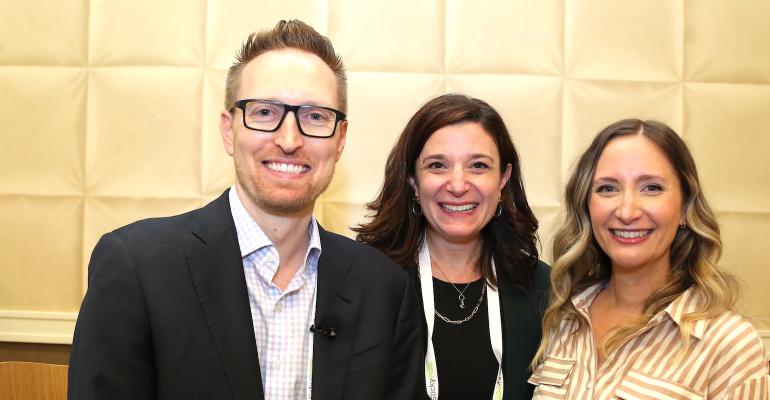Making the restaurant experience even more personal, especially when the customers are away from the store, can be achieved with data and its savvy use, panelists at FSTEC said Thursday.
“From Consumer to Guest: Using Data to Win in the Age of Personalization” innovation panel at FSTEC, the foodservice technology conference, included moderator Ray Gallagher, general manager at Olo Engage, as well as Emily Hargreaves, senior director of marketing at Bradenton, Fla.-based First Watch Restaurant Group Inc. and Joanne Polott, vice president of strategy, insights and activation at Bounteous, a digital agency.
“Personalization is a really, really valuable tool for restaurants,” Polott said. “It is something that drives conversion. It drives repeat purchase. And it actually creates connections with customers that feel authentic.”
Polott shared recent research of people who had visited restaurants or ordered digitally over the past year.
“One of the biggest things that we found is that personalized recommendations really do motivate different behaviors,” Polott said. “In the study, 70% of the respondents said that personalized recommendations made them feel known and actually 59% of respondents said the same for both emails that had their names called out specifically.”
Increasing customer frequency at a brand is one goal of personalization, said Hargreaves of First Watch, the breakfast-lunch-brunch concept.
“Customer frequency is something we didn't have any understanding of” before the company’s technological evolution, which was sped up by the pandemic that started in 2020, said Hargreaves, who joined the company during the COVID restrictions. The company has since developed tools to track guest frequency as well to drive increases in incremental check, she said.
First Watch does not have a loyalty program, but it does allow customers to opt into special emailed menu offers when they check out the online menu at the company’s website.
“When you drop in your email address,” she explained, “you have the option to tell us a little bit more about your dietary preferences.” That allows the marketing team to select out, say, vegetarians, if it is highlighting a meat-heavy item, she said.
Polott said Noodles & Company recently implemented machine learning that drives recommendation engine that uses prior orders as a guide. “This rolled out fairly recently,” she said, “and the results have been pretty incredible. The orders of the recommended items rose by 50%.”
Hargreaves advised those on a personalization journey to incorporate other teams, such as operations, early in the process. That cross-functional teamwork can help the project manager “see around corners,” she said.
Correction Sept. 15, 2023: This story has been edited to correct the machine-learning brand.
Contact Ron Ruggless at [email protected]
Follow him on X/Twitter: @RonRuggless

